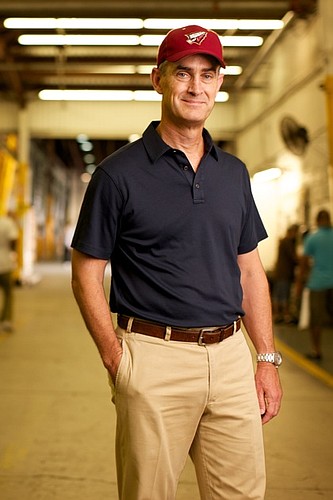- November 26, 2024
-
-
Loading

Loading

When Kent Shoemaker was hired as CEO of Immokalee-based Lipman in September 2010, one of his mandates was to diversify the company's operations.
Lipman, formerly known as Six L's, bills itself as the largest tomato producer in Florida. While the privately held company doesn't disclose sales, its operations span 23 locations nationwide and 4,000 employees.
Under Shoemaker, a food-distribution veteran who hailed from corporate giant Sysco, family-owned Lipman plans to diversify geographically and seasonally to locations such as California and Mexico.
In November, Lipman acquired Coastal Brokers, a tomato packer in Portland, Ore. Terms were not disclosed, but the acquisition gives Lipman a foothold in the retail and food-service vegetable business in the Pacific Northwest. Coastal Brokers has about 120 employees and serves Oregon, Washington, and Vancouver, Canada, Shoemaker says.
Coastal Brokers buys tomatoes from growers such as Lipman and repackages them to sizes that retailers and restaurants want. “They fit our objective of being more geographically diverse,” Shoemaker says. “I knew the owner from a long way back.”
In addition, Coastal Brokers fits Lipman's business model of controlling the production and sale of tomatoes from the farm through the packing and distribution. Customers, such as grocery stores and restaurant chains, want to be able to track where the tomatoes come from that they sell. They want to know that pickers and packers are treated fairly, that environmental protections are in place and that food is safe to eat. “People want to know the farmer,” Shoemaker says.
Because Lipman controls the tomato growing process from seedling to store, it can track the food through the entire “vertically integrated” chain. It calls this system “access to the acre.”
As part of that effort, Lipman plans to launch a website early next year that will let shoppers who scan a code tell them where the tomatoes come from and suggest recipes. “People want to eat and they want to eat fresh and healthy,” Shoemaker says.
Shoemaker says more acquisitions are in the pipeline. “We plan on growing in 2012,” including California and Mexico. Size matters in agriculture today because small operations can't bear the costs of increased government regulations and rising wages.
In addition, Lipman has a team of scientists who are developing new varieties of tomatoes. For example, the company plans to grow a new variety of smaller tomato in the spring that can be picked riper and has a better flavor, Shoemaker says.
Shoemaker is the first outsider to run Lipman, a fourth-generation family business. Larry Lipman, the grandson of founder Max Lipman, recently retired as CEO and remains chairman of the company.